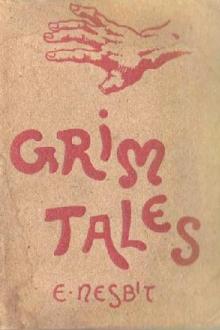Now I Lay Me Down to Sleep - Katie Flanagan (room on the broom read aloud .TXT) 📗

- Author: Katie Flanagan
Book online «Now I Lay Me Down to Sleep - Katie Flanagan (room on the broom read aloud .TXT) 📗». Author Katie Flanagan
Now I Lay Me Down to Sleep
Purgatory is worse than hell, I think as I sit. I have been waiting for the past year, and these last few minutes are the worst of all. My foot is bouncing to burn my nervous energy, and my hands are so sweaty I have to wipe them on my slacks. My waiting companions seem calm in contrast to me. The woman a few seats over is flipping through a fashion magazine as if she is waiting in a dentist’s office, and the college student across the room is working his way through War and Peace. I glance up as the clock ticks off another minute of my life. Of my baby’s life.
I think back to the last time I was in a hospital waiting room. It was seven-and-a-half years ago, in a hospital much less endowed than the one I am condemned in now. I remember seeing specks of blood on the buckled tile floor as I waited to be invited to meet my newborn baby. She hadn’t wanted me in the room during the delivery, my baby’s mother. She hadn’t wanted anything else to do with me after I had gotten her pregnant. When I was finally allowed into the hospital room, the bed was covered in blood and other liquids that I didn’t want to think about. A nurse handed me a bundle wrapped in soft pink blankets, and I held my baby for the first time.
Her face pinched into a wail as she transferred from the warm embrace of the nurse to my awkward arms. Her soft pale skin was blotched with red from the hard work of being born, her fingertips peeking out from the tip of the blanket to give me a shy wave. She was warm and heavy in my arms, and I was afraid that if I breathed on her too hard she would break.
After a few minutes, the nurse took my baby back and carried her to the nursery. I was also taken out of the room as my baby’s mother demanded that I get out of her sight. She discharged herself from the hospital two days later. I never heard from her again, but it didn’t bother me. She had been a fleeting fancy, a presence I missed only because it meant my baby had no mother.
I named my baby Bridget and took her back to my old apartment. I lived in a crumbling old building whose floorboards creaked and windowpanes cracked. When I brought Bridget home, I had to pay a neighbor to run out and buy me diapers and baby food and baby clothes. All I had gotten beforehand was an old crib.
I tried to be both mother and father to Bridget while slowly working my way up the ladder of a respectable insurance company. When she began to crawl and walk and experiment with holding things she shouldn’t have been holding, I decided to move out of my less-than-child-safe apartment. I purchased a three-bedroom house in a suburb that had a good school system and enrolled Bridget in the best daycare I could find.
Now I sit in a different hospital waiting room, hoping a doctor will wake me up from the nightmare that has been the past year. The clock ticks away another minute. I’m considering running around the waiting room to burn energy when the doctor emerges from a swinging gray door.
Our eyes meet and I hurry over to his side. I notice his skin is hardening, as if preparing to wrinkle, and it makes his bright blue eyes stand out awkwardly on his face. I am strangely comforted by the fact that he doesn’t wear glasses. He leads me to his office, attempting to fill the silence with simple chatter about the weather this month.
My nervousness increases as I sit down in the chair next to his desk. It is dark leather as doctor’s chairs should be, and his office is filled with medical books, as I expected. Once again, I find myself slipping into comfort. Perhaps even hope.
He finishes his conversation about the weather reluctantly, folding his hands into his lap. My heart is launched into a state of limbo as I wait for his news.
His voice delivers the harsh words in a soft, apologetic tone. The allergenic stem cell transplantation didn’t work, he says. The new bone marrow didn’t help. There’s nothing more we can do. He’s sorry, he says.
The words bounce off the iron armor I have built for myself over the last year, but they sink into my heart like knife wounds at the same time. I ask a few questions, mostly to make sure that he’s not just trying to get the day done and go home to his happy family who never get sick and never force him to feel this way. There really is nothing else to be done, he assures me regretfully. The cancer has spread to her heart and brain, he explains in words not so simple. I ask him how long she has. How long I have. Three months at most, he half-whispers. I nod. It’s the number I expected. I request that he discharge her from the hospital. His bushy white eyebrows pull together in a frown for a second before he slowly nods.
I stand, letting the conversation drip off me, and slowly make my way into the hospital hallway. My feet feel as if they are weighed down with iron chains. A few people glance at me as I zombie-walk down the corridor, but I don’t remove my eyes from the wall ahead of me. Deep down, I had expected the news. In my head, I had expected the news. In my heart, I hadn’t allowed myself to think of it.
She is staying in a standard hospital room. Mounted in the upper corner is a television, against one wall sits an uncomfortable couch, and beeping machines surround a metal bed. I let my eyes sweep the room I have seen a hundred times before allowing them to settle on the person in the bed. My iron armor falls off when I see her.
Bridget is lying in the bed, the light cotton blanket pulled up to her stomach, her hands curled around its edges. The gray hospital gown seems to swallow her torso and arms, leaving only her head and thin neck for my viewing. Her beautiful face reflects the green and gray tint of the room, making her look sickly. I run my fingers over her bald head, pretending that her golden hair still flows down past her shoulders to the middle of her back.
Her eyelids flutter, and I manage to smile down at her curious brown eyes. “What did the docor say, Daddy?” She has yet to manage to say the “t” in “doctor.”
“He said I get to take you home.”
Her face brightens, her thin lips pulling apart to show her nearly toothless smile. “Am I better?”
I freeze, searching for the right response. “Do you feel better?”
She frowns slightly as she takes stock of herself. “Not really.”
I don’t know what to say to that so I stay silent, resting the gym bag I have brought on the bed. She gazes at it with a smile, a hand weakly reaching out to touch it. Unzipping the top, I give her a grin and reach my hand into the bag. “Give me a guess.”
Bridget beams at the prospect of a game and presses her lips together in thought. She giggles at her idea. “A rabbit!”
How can I refuse her beaming face? I stick my second hand in the bag as well and play around with the cloth until it resembles a monster. Giving Bridget another smile, I pull my creation out of the bag. “A rabbit!”
She giggles again, leaning back against the pillows weakly. I nudge her cheek with the monster a few times before un-bunching the cloth to reveal its true form: her favorite shirt. The faces of four Disney Princesses are featured on the bright pink T-shirt. Her face becomes more lively at the prospect of removing the drab hospital gown, and she grabs the shirt out of my hands. I rummage out her purple linen skirt that she wore for two straight weeks in pre-school. She had grown out of it by the time she reached kindergarten, but I know that she is small enough for it again.
I help her out of the bed and take off her hospital gown as she holds onto the railing of the bed to keep her balance. After stepping into the skirt by herself, Bridget holds her arms up in the air so I can pull the shirt over her head. I place her carefully on the bed before returning to the bag for socks and shoes.
Once she is dressed, I push Bridget through the hospital in her wheelchair. She considers riding in the wheelchair to be a game, and she beams proudly at everyone we pass. The nurses smile indulgingly at her before letting their expressions slip into pity as they look at me.
We move into the parking lot, and Bridget relishes the bumps that come with the asphalt. It is the closest she will ever come to a roller coaster.
“Can I sit in the front seat today, Daddy? Am I old enough yet?” she bubbles on our way to the car.
I decide not to disappoint her today, even though the sticker in the car says a child should be twelve years old before riding up front. “I think that seven-and-five-eighths years old is old enough.”
She squeals with delight. I can’t help but notice that her squeal is a full degree quieter than it would have been a year before. I am about to reach out to ruffle her hair when I remember that she has no hair.
For the first few minutes of the ride home, Bridget chatters brightly. Then her speech slows, and when I glance over at her at a stoplight, I see she has fallen asleep. I can’t help but smile, she looks so peaceful.
Guiltily, I am glad that her mother is not around. I don’t want to share Bridget with anybody, not that her mother would have spent time with her. Her mother was a woman of her profession who barely had time for even herself. The few dinners we had in the month we were together had been scheduled around her meetings and trial dates. I remember that when she told me she didn’t want to keep Bridget, a baby still growing in her stomach, I felt a sudden sense of relief that the child wouldn’t have to grow up in her overscheduled shadow.
I carry Bridget in my arms to the living room. She is so light I feel as if I am carrying a large rag doll. I sink onto the lumpy blue couch and cradle her in my arms, rocking back and forth as if she were a wailing baby. Giggling, she curls in my lap and rests her cheek on my chest.
“What do you want to do, sweetheart?” I ask. It is her first night in our home for over two weeks.
She presses her lips together into her thinking expression. Then she smiles with excitement. “Make cookies!”





Comments (0)